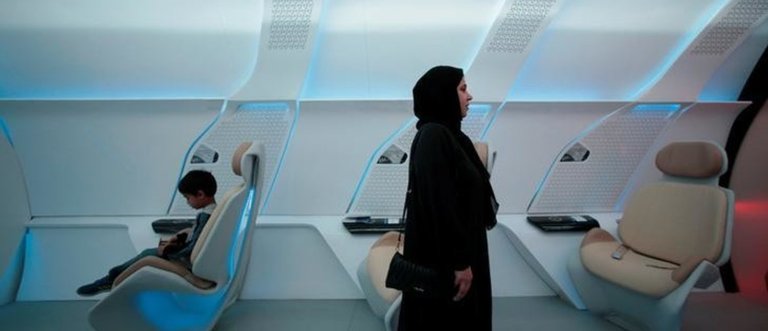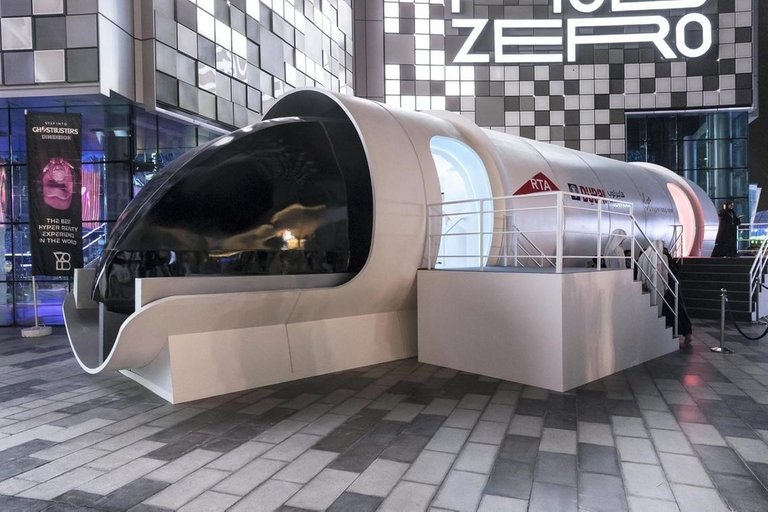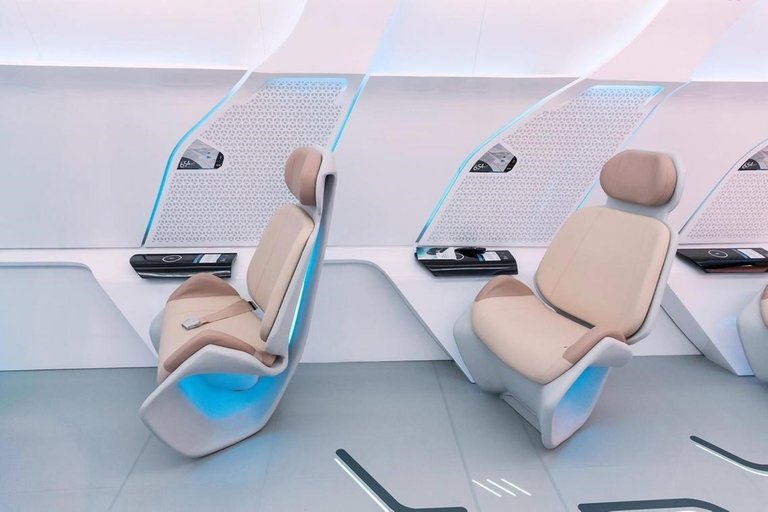
Our fascination with high-speed travel has resulted in the development of some incredibly fast machines.
Concorde, once the world’s fastest commercial passenger jet, travelled at speeds of over 2,000 kilometres per hour – more than twice the speed of sound.
And when the magnetic-levitation bullet train was introduced in Japan, it became the world's fastest train, reaching speeds of 600 kph.
Now we’re awaiting the hyperloop, the futuristic, high-speed ground travel system first proposed by SpaceX and Tesla CEO Elon Musk in 2012. One of its developers, Virgin Hyperloop One, says it can travel at speeds of up to 1,200 kph (760 mph).

Virgin unveils prototype in Dubai
A prototype of the pods designed to carry passengers was unveiled in Dubai, where the first operational hyperloop system is scheduled to be built, possibly as soon as 2021.
The Dubai hyperloop pod is a full-scale, immersive structure designed so that members of the public can explore a hyperloop experience and get a glimpse of the system from a passenger’s perspective.
The project is being developed by Virgin and Dubai’s Roads and Transport Authority (RTA). Director-General HE Mattar Al Tayer said the hyperloop was part of the authority’s initiatives for Dubai Future Accelerators, a programme aimed at pairing the world's most exciting technology companies with leading government organizations.
“RTA and Virgin Hyperloop One have made considerable progress in the technical, engineering and economic feasibility study of the project. Progress made also included identifying the routes for operating the hyperloop along with its initial design model,” Al Tayer says.

How does it work?
The hyperloop uses an electromagnetic propulsion system to accelerate through a vacuum tube, Virgin says. The vehicle is designed to float above a track and glides at high speeds for long distances due to low aerodynamic drag. Hyperloop will also be fully autonomous and enclosed, eliminating pilot error and weather hazards, Virgin adds.
Passengers travelling on the Dubai hyperloop would be able to get from the city to Abu Dhabi, a distance of around 140 km, in 12 minutes. Currently, this trip takes about two hours.
The system would carry about 10,000 people per hour in both directions.
SpaceX is encouraging student innovation
Unsurprisingly, hyperloop technology is fascinating entrepreneurs around the world. Musk’s company SpaceX, which recently launched a car into space as part of a Falcon Heavy rocket test, is offering students the chance to develop functional hyperloop pods.
The Hyperloop Pod Competition was launched in 2015, with the first competitions held in January and August last year. Now, the competition is returning for 2018, with SpaceX asking students to focus on a single criteria – maximum speed.
A hyperloop system built by SpaceX at its headquarters in California is approximately one mile in length with a six-foot (1.8m) outer diameter.
src

